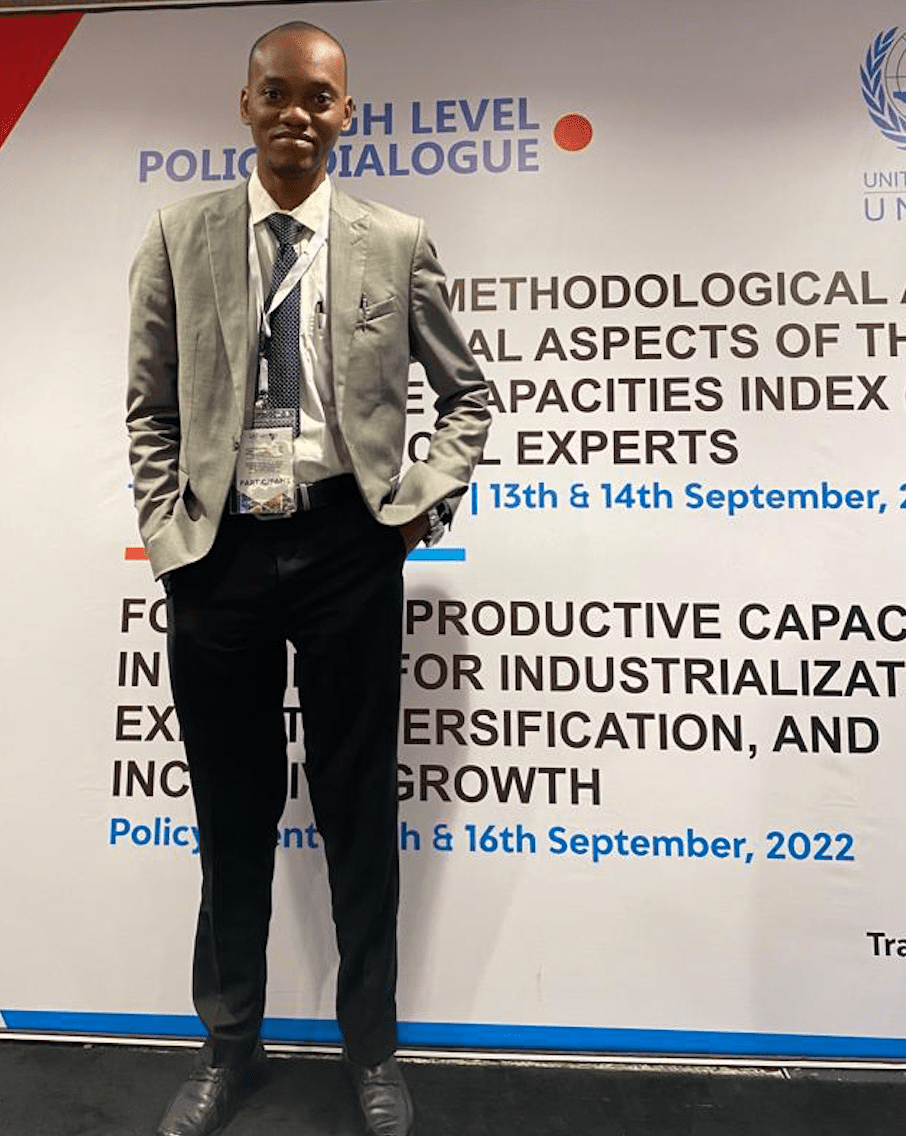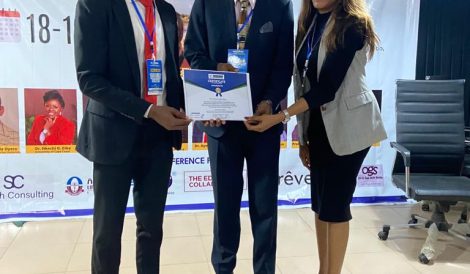Prof. Evans Osabuohien
- Posted on
- No Comments
Prof Evans Osabuohien speaks at the joint UNCTAD–CSEA Workshop on Industrialisation, Export Diversification and Inclusive Growth
The United Nations Conference on Trade and Development (UNCTAD) and the Centre for the Study of the Economies of Africa (CSEA) jointly organised a National policy-level workshop on “Fostering Productive Capacities in Nigeria for Industrialisation, Export Diversification, and Inclusive Growth”. The event was held in Abuja, Nigeria from the 15th to the 16th of September 2022. The workshop provided a platform for senior government officials, experts and representatives of the private sector, academia and civil society to discuss the role of productive capacities and structural economic transformation and how it can best be placed at the centre of Nigeria’s national policies and strategies.
Professor Evans Osabuohien was among the invited speakers and he gave a discussion on the topic “Industrialisation, economic diversification and manufacturing in Nigeria: Discussion on policy interventions”. During the discussion, he stressed the reasons why Nigeria, the most populous country in Africa still hasa high proportion of her living below the poverty line.


At the event, some gaps in the productive capacities were discussed with respect to the eight main areas, namely: human capital, natural capital, private sector, energy, transport, ICT, institutions, and structural change. Thus, increase in the productive capacities of these areas is crucial for a country to move on the path of sustainable development. Thus, there is a need to address these gaps through undertaking a National Productive Capacities Gap Assessment and Developing a comprehensive, multisector and long-term programme.
In conclusion, the development challenges facing Nigeria, like many African countries, call for a pragmatic policy approach and the formulation and implementation of new generation development policies centred on the fostering of productive capacities and structural economic transformation. This should signal a shift away from the short-term, sector and project-specific interventions towards long-term, comprehensive and programmatic approaches to development. To that end, Nigeria needs to capitalize on its strengths and potential to further enhance its domestic productive capacities with the view to the kick-starting structural transformation of its economy.
Details on the workshop are online.




